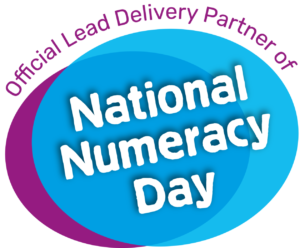Announcement from Jamie Hepburn MSP on the new Scottish Government funded Digital CLD Programme being rolled out over the next few months
___________________________________________________________________________
When Scottish Government has been engaging with Community Learning & Development (CLD) stakeholders, the issue of digital upskilling for CLD practitioners has been a consistent topic on everyone’s mind. Indeed, Working with Scotland’s Communities 2018, a workforce analysis of CLD in Scotland, reported that digital skills were one of the most common development needs of the workforce and are the skills that employers most often struggle to find when recruiting staff.
Even though this was a topic at the forefront of our minds before the pandemic, stakeholders have told us that COVID-19 has only exacerbated the need for digital upskilling. The message has been clear: CLD practitioners need investment to help them build their digital capabilities in order to better support CLD learners.
With the need for skills development in mind, I was only too pleased that – earlier this year – the Scottish Government committed £500,000 to support the development of CLD practitioners. This funding sought to develop digital skills and capacity among CLD practitioners, ultimately ensuring that better CLD provision is delivered to those who need it most.
Three great projects have been awarded over £400.000 so far and I wanted to take this opportunity to share information on those projects with you.
The Open University in Scotland
The Open University in Scotland (OU) has been funded to develop a workforce offer for the CLD sector. With more than 50 years’ experience of widening access, the OU understands the adult learner journey and the barriers people face in accessing higher education, and are committed to the vision that ‘Adult learning in Scotland will develop better skilled, educated, confident and empowered people contributing to connected and inclusive communities.’
The OU’s project will work with partners to develop an online portal with free, online learning resources for the CLD workforce and it will offer CLD practitioners at least 200 funded places on Open University micro-credentials (short courses) through its FutureLearn platform. To help roll out learning workshops to local authorities and third sector providers all over Scotland, they are creating a network of Regional Champions to roll out learning workshops to every region of Scotland. These champions will also facilitate learning clubs for practitioners undertaking workshops, courses and other learning opportunities.
With a social mission is to make education accessible to all, and a commitment to partnership working to enhance the offer, Scottish Government believes that partnering with the OU is a good opportunity to offer a range of development opportunities to the CLD workforce.
CLD Standards Council
The Community Learning and Development Standards Council (CLDSC) is supporting the development of a CLD digital framework for the sector. As the professional body for CLD – including adult learning, community development and youth work – they are supporting the development as part of their responsibility to support the professional learning of its members and to quality assure CLD related learning programmes. Funding from Scottish Government will allow the CLDSC to appoint a new member of staff to support the creation of a coherent space for CLD digital support.
The CLDSC will work closely with CLD sector leaders to develop new and relevant digital competences in line with the professional CLD competences, ethics and values.
Digital Schools Award
A new Digital Award programme for CLD is now under development through an education-industry collaboration led by tech companies working closely with various partners, including national CLD partner organisations and learners themselves. The Digital CLD Award will be shaped by these partners to highlight the ways digital technologies are stimulating innovation and improving learning opportunities. As a national Award, it will promote and build capacity in effective uses of digital technologies by organisations.
The Award will recognise the many planned and ongoing improvements that organisations are making in developing the skills of their staff to improve the ways they can reach and support learners through digital technologies. It will have a key focus on sharing practice and strengthening skills in using digital technologies across the CLD sector. That will include through the important promotion of strong cyber resilience and internet safety practices, and digital wellbeing.
The CLD Award will also highlight how well these increasing uses of digital approaches are impacting on the experiences and skills of learners themselves. Together, CLD practitioners and learners are helping to build the digitally literate and inclusive young people, adults and communities of the future. This national Digital CLD Award, backed by the education-industry partnership, will play a significant role in acknowledging and celebrating these important digital achievements of our CLD workforce and learners.
The remaining funding
I hope you’ll agree that the projects funded to-date will help begin to advance the digital skills of CLD practitioners all over Scotland, and I hope you’ll engage with them when given the opportunity. I’m delighted that Scottish Government is supporting this work and I look forward to seeing the positive impact it will have.
Officials in the CLD policy team at Scottish Government are currently working on plans to invest the further c.£100,000 remaining in the investment and are scoping projects that will help get digital devices direct into the hands of CLD practitioners all over Scotland.
Jamie Hepburn MSP
Minister for Higher Education and Further Education, Youth Employment and Training





